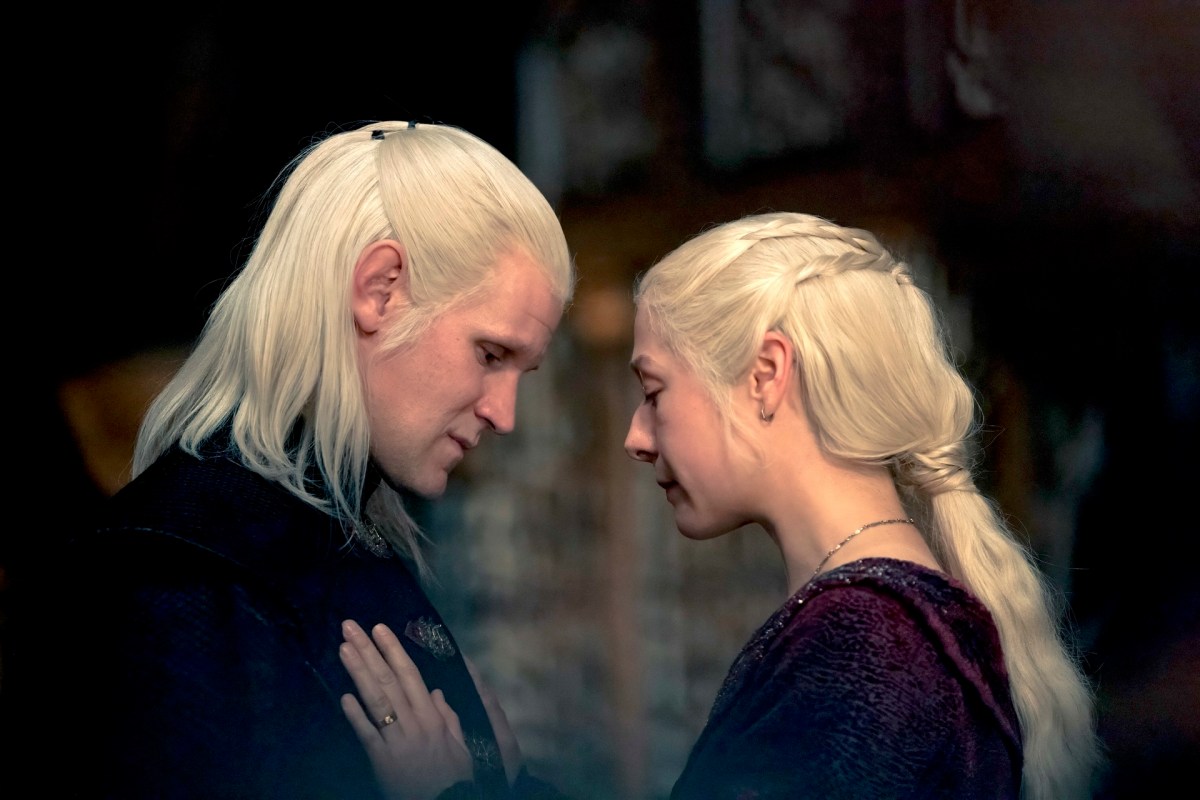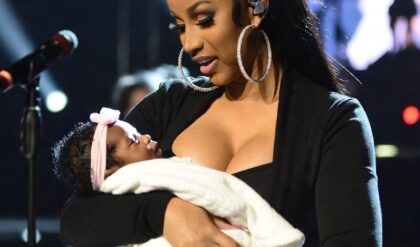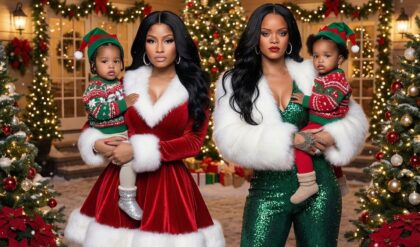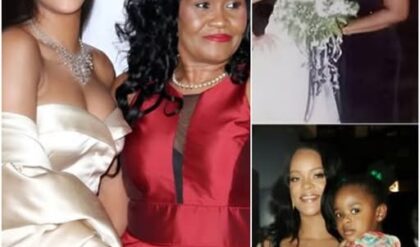This marriage is a bit crowded.

One of the most pivotal scenes in House of the Dragon’s “A Son for a Son,” season 2’s second episode, is the fight between Rhaenyra Targaryen and her husband-slash-uncle Daemon, and not just because Emma D’Arcy and Matt Smith are both throwing amazing acting at each other.
Spoilers ahead for the events of the second episode of the second season of House of the Dragon, “A Son for a Son.” Be warned!
The fight sparks from Rhaenyra learning of Daemon’s part in the hiring of Blood and Cheese to sneak into the Red Keep and kill—those were the orders—Aemond Targaryen as retribution for his murder of Rhaenyra’s son Lucerys. But when Blood and Cheese couldn’t find Aemond, they turned to little Prince Jaehaerys instead, the only son and heir of Aegon and Helaena.
 (HBO)
(HBO)
The murder of Jaehaerys is horrific and has deep repercussions throughout the realm, and even Rhaenyra’s own allies on her council visibly distance themselves from her when they think she is the one who ordered the act. So when she discovers that it all started with Daemon, they pretty quickly descend into what is probably the most heated argument we have ever seen between them.
The scene marks a turning point in Rhaenyra and Daemon’s relationship and really lets us see into who they are as people: Daemon’s objective impulsiveness and his tendency to barrel full steam ahead, strong in his belief of absolute Targaryen superiority, and Rhaenyra’s doubts over his loyalty and endless worry about securing her position on the Iron Throne.
And throughout all this conversation, which happens in what seems to be Rhaenyra’s rooms on Dragonstone, there’s a third person following their every word—haunting them, one might say, just like he’s haunting the narrative, at least for Rhaenyra and Daemon. And that’s Viserys Targaryen.
It always returns to Viserys
Viserys, whom I heartily despise, was an all-important figure in the lives of both Rhaenyra and Daemon, and they both have heaps of unresolved issues when it comes to him—which they proceed to unload on each other since they can no longer do it with the actual Viserys.
Rhaenyra’s oldest conflict is, of course, that of being born a girl instead of the son her father greatly desired. She voices this several times throughout the first season of House of the Dragon, and it’s something that probably haunts her even after Viserys declares her his heir and shows a clear preference for her over his other children, with Alicent.
 (HBO)
(HBO)
Then there’s the fact that Viserys indirectly caused the death of her beloved mother Aemma and the fact that of all the noble ladies in the Seven Kingdoms, he chose to marry Alicent, Rhaenyra’s closest friend and queer situationship. Sure, Rhaenyra mostly misplaces that anger on Alicent herself, as if she had any say in the machinations of her father with the King, but I’m sure that deep down she knows that she was helpless in that situation.
Rhaenyra ultimately has two of the three main conflicts that I like to think a character can have in the ASOIAF world: the dehumanizing experience of being a woman in an extremely patriarchal universe and the burden of the firstborn. She feels the immense pressure of wearing the crown and doing good by the realm, and she also feels entitled to it, a push and pull of following Viserys’s expectations and compensating for her gender while also testing its boundaries.
On the other hand, Daemon is the poster boy of the third of those three conflicts—the unhingedness that comes from being the second son in a feudal society, where being born second means that you inherit nothing at all and forever have to defer to another man, much in the way women are expected to.
While this isn’t exactly the place to unload all my ramblings about Daemon and gender roles, what’s certain is that Daemon has always felt both inferior and superior to Viserys and restricted by his birth order. He clearly loved his brother in his own way, and most of his actions can be seen as a way to help Viserys and uplift him, but also despised him for sitting on a throne that a good part of Daemon believes he’s more suited to.
It’s something that pops up in his argument with Rhaenyra when he tells her that Viserys only named her heir because he was afraid of Daemon and not because she had the makings of a great queen. Sure, Daemon might have said all this in anger, to hit her where it truly hurts like every good manipulator does—and it’s not lost on me that Otto Hightower does the same with Aegon, marking yet another parallel between Rhaenyra and her half-brother—but I’m inclined to think that there is a foundation of truth in what he says.
Ultimately, like a good chunk of the second sons we’ve seen throughout A Song of Ice and Fire, he believes he can do a better job than his older brother and wants to surpass him—like Otto Hightower, or Larys Strong, or Aemond Targaryen. Not all of them are like this, of course, some of them simply live in the shadows of their elder brothers on varying degrees of comfort—like Ned Stark and Bran Stark, or Tyrion Lannister, or the Viserys Targaryen we met at the beginning of Game of Thrones, or Oberyn Martell.
But that’s not Daemon, and it will always get in the way.





